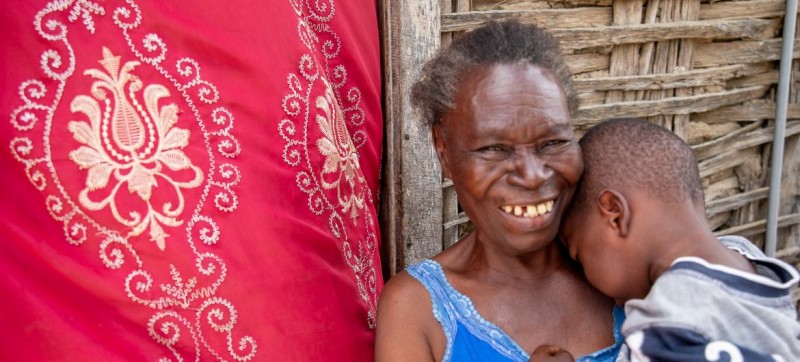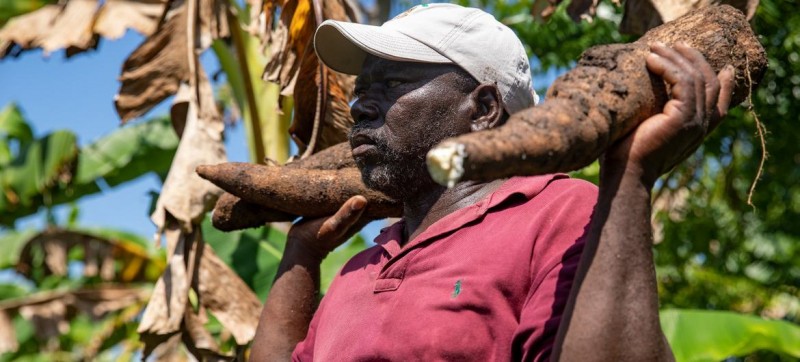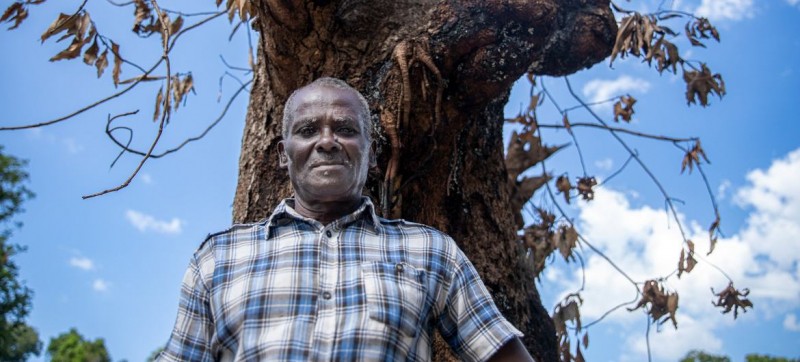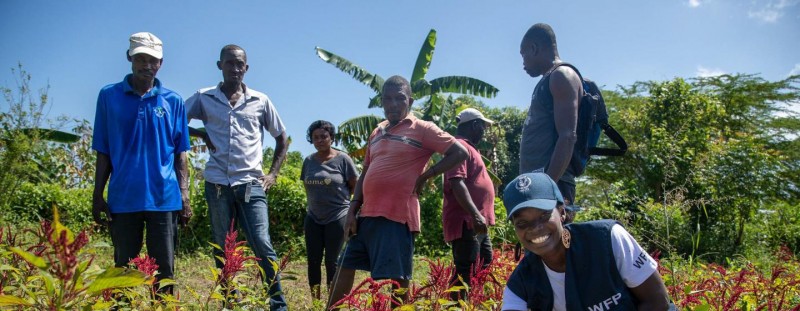WFP agronomist Rose Senoviala Desir interacts with farmers in the north of Haiti. Farmers in the north of Haiti are working to build their resilience to extreme weather patterns in an attempt to better protect themselves from the loss of property and crops that often result from natural disasters. A large majority of the mainly rural population in the north of the country are facing a hunger crisis according to the latest Integrated Food Security Classification Phase or IPC report IPC which provides an overview of the severity and magnitude of food insecurity and malnutrition. The Haitian Government, the World Food Programme (WFP) and other partners, have been supporting farmers in the region as they recover from a cycle of droughts and floods. Many have received payments for working on projects that have built resilience in their communities. Like farmers around the world, they are fiercely proud of their way of life and the crops they grow and are keen to provide a future for their families. Here are three of their stories. Mariette Samson lost her crops in a flood in her village in northern Haiti in January 2022. “When our land floods, we lose all our crops. In January, I lost all my beans as well as maize, bananas, potatoes, yams, and pumpkin. This land feeds a family of ten, but we have no stocks of food. I have been working on a neighbour’s land so I can share some of that produce. Today, it is only my three grandchildren who have eaten; I gave them coffee and bread and now I am preparing some beans for the whole family which will be our one meal of the day. I have planted for the next season and so we will have food again later in the year, but until then we will go hungry. I have also contributed my work to the community here in Dubuisson between July and September last year to build some structures which will make future flooding less severe, and that money has helped me a lot. Marc Magloire shows his latest crop of sweet manioc. “The land in Limonade is fertile and we receive lots of rain, but we have always found it difficult to consistently water our crops. We worked with WFP to dig irrigation channels across the land of our association of 200 farmers and we can now pump water to grow a wide range of new crops, including aubergine, cabbage, spinach, spring onion and beetroot. I can now eat beetroot salad again on Sundays, a local custom that I enjoy. Before the irrigation, during a drought we would eat only one meal a day, but now we can eat three times a day as well as sell food to pay for the needs of our families. I am proud to be a farmer, this is my life; it is a good life. My children will carry on the farming tradition which is strong in this region. Elie Devil stands in front of the mango tree he saved. “My neighbour wanted to cut down an ancient mango tree to make charcoal, but I prevented him from doing this as I know that deforestation leads to the erosion of the soil which harms all people and especially farmers in Pilette where I live. I learnt about the importance of reforestation to protect the soil and prevent flooding as part of the WFP project and I am keen to see more mango, avocado, cacao and coffee trees planted. These will protect our environment and provide us with nutritious food. As a community, we worked together to build flood protection measures in the ravines which drain into the river. These prevented sediment and soil from running off the hillsides, but we need to do a lot more as recent heavy rains still caused damage in the valley. The weather is changing in this region; the rain is less and more unreliable, so many people like my neighbour want to cut trees to make charcoal so they can survive. In the past, the rain was more consistent and so there was more to eat, and we rarely lost our crops to flooding, so people didn’t need to make charcoal. My neighbour no longer talks to me, but I don’t care because I saved that mango tree.”Mariette Samson: ‘I lost all my beans’


Marc Magloire: “I eat beetroot on Sundays”

Elie Devil: “I saved a mango tree from being cut down”
The World Organization for Development has been endowed with consultative status with the UN ECOSOC since 2014. The World Organization for Development, which has consultative status wich the UN ECOSOC, develops and implements Global Initiatives to achieve the UN Sustainable Development Goals.




Comments are closed.